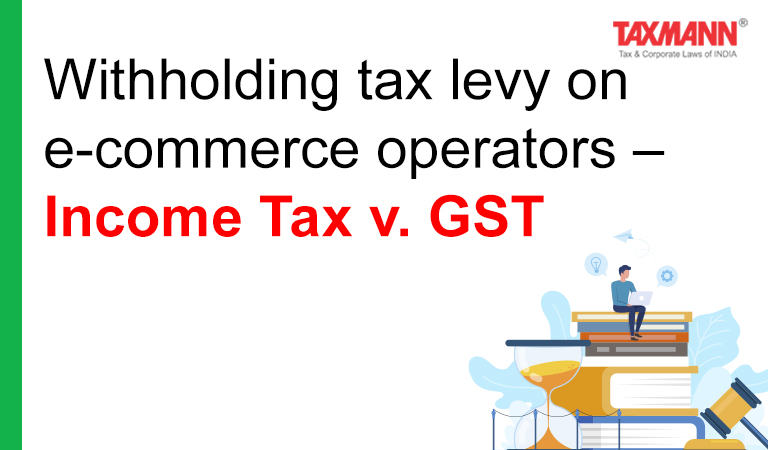Withholding tax levy on e-commerce operators – Income Tax v. GST
- News|Blog|GST & Customs|
- < 1 minute
- By Taxmann
- |
- Last Updated on 13 December, 2021

Sonal Singh Baghel & Parvathy R. Kartha – [2021] 131 taxmann.com 141 (Article)
Indian E-commerce industry has been on an upward growth trajectory and is expected to surpass the US to become the second largest e-commerce market in the world by 2034. Propelled by rising smartphone penetration, launch of 4G network and increasing consumer wealth, the Indian E-commerce market is expected to grow to US$ 200 billion by 2026 from US$ 38.5 billion in 20171. Though the e-commerce platform is usually owned/managed by big players, the sellers/participantsregisterd on such platforms are often small retailers/wholesalers and service providers. Further the business of sale or supply of service through e-commerce platforms dispenses with the requirement of having a physical office/location.Therefore, keeping a tab of such small players and enforcing taxing provisions has been a challenge for the Government.
In order to bring such small players within the tax net, the Government has introduced various tax withholding provisions under the direct and indirect tax legislations. This article seeks to examine the various tax withholding provisions that may be applicable on an e-commerce operator under the Income-tax Act, 1961 (‘IT Act’) and Central Goods and Services Tax Act, 2017 (‘CGST Act’)
Click Here To Read The Full Article
Disclaimer: The content/information published on the website is only for general information of the user and shall not be construed as legal advice. While the Taxmann has exercised reasonable efforts to ensure the veracity of information/content published, Taxmann shall be under no liability in any manner whatsoever for incorrect information, if any.

Taxmann Publications has a dedicated in-house Research & Editorial Team. This team consists of a team of Chartered Accountants, Company Secretaries, and Lawyers. This team works under the guidance and supervision of editor-in-chief Mr Rakesh Bhargava.
The Research and Editorial Team is responsible for developing reliable and accurate content for the readers. The team follows the six-sigma approach to achieve the benchmark of zero error in its publications and research platforms. The team ensures that the following publication guidelines are thoroughly followed while developing the content:
- The statutory material is obtained only from the authorized and reliable sources
- All the latest developments in the judicial and legislative fields are covered
- Prepare the analytical write-ups on current, controversial, and important issues to help the readers to understand the concept and its implications
- Every content published by Taxmann is complete, accurate and lucid
- All evidence-based statements are supported with proper reference to Section, Circular No., Notification No. or citations
- The golden rules of grammar, style and consistency are thoroughly followed
- Font and size that’s easy to read and remain consistent across all imprint and digital publications are applied



 CA | CS | CMA
CA | CS | CMA
